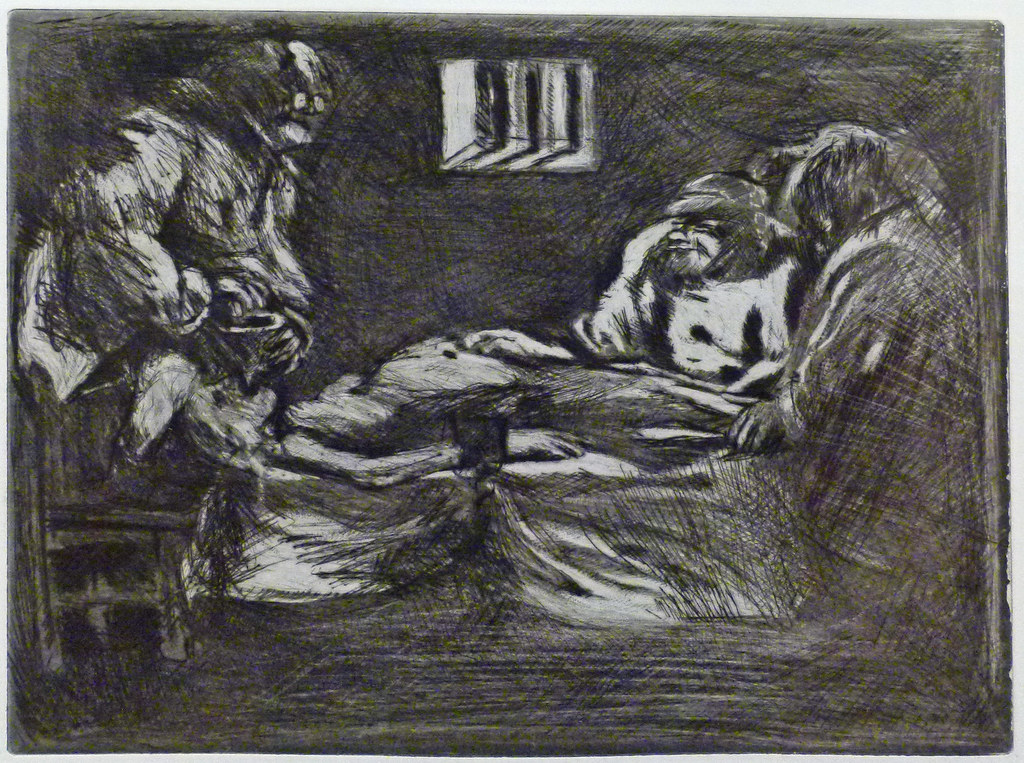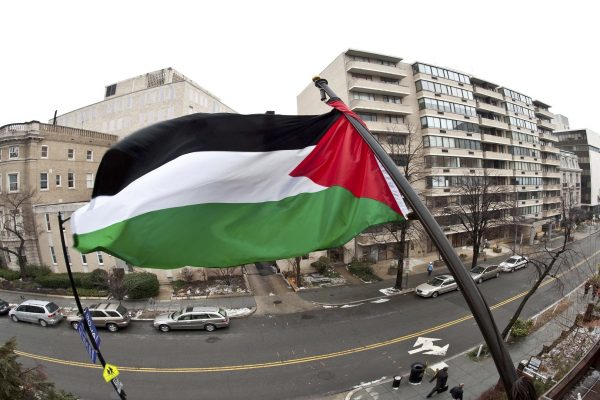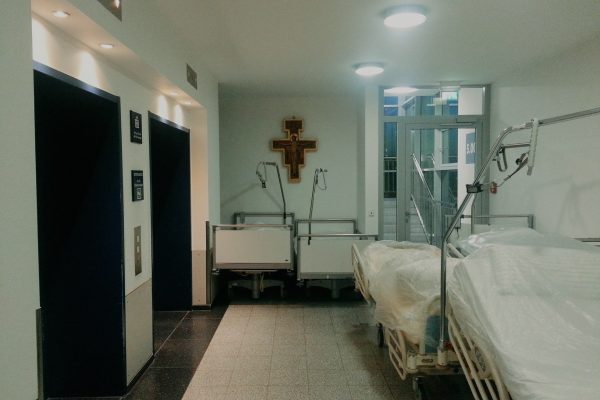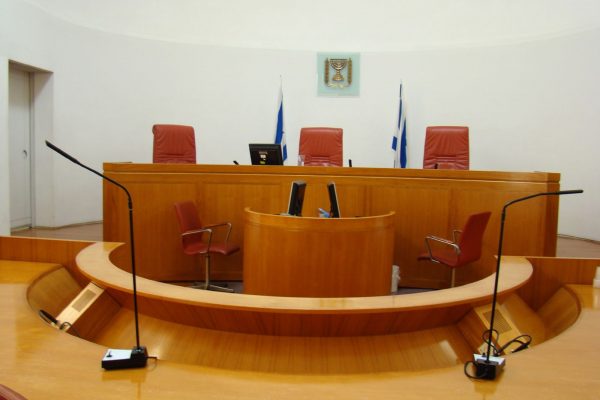By some unholy coincidence, the terms “water boarding” and “air hunger” entered my vocabulary in the same week. They came by such different routes, though, that I didn’t know how they were related until some time later.
“Water boarding” has long been part of military-intelligence slang, but it first entered the American political lexicon on May 13, 2004, on the front page of The New York Times. The CIA, the Times reported, had used water boarding as one of several “graduated levels of force” in its “coercive interrogation” of Khalid Shaikh Mohammad, a man supposed to have helped plan the September 11 attack. The Times put water boarding in quotation marks and defined it as “a technique . . . in which a prisoner is strapped down, forcibly pushed under water and made to believe he might drown.”
“Air hunger” had entered my family’s spiritual lexicon six days earlier, on May 7. My mother’s lung cancer had progressed to the point where she was having long, spasmodic coughing fits. I was just getting accustomed to those, or at least accustomed enough that I no longer panicked and wondered whether I should call 911. Then one day she coughed up blood—not once, but several times, the clots getting bigger and bigger over a half-hour or so. My brother David drove her to the hospital.
The emergency-room doctor told Mom that coughing blood is part of the “normal progression of lung cancer”: it would get worse and worse, she would eventually cough up “this much at a time”—he held up his coffee mug to illustrate—she would have trouble breathing and would need to come to the hospital quickly. Because Mom had stopped coughing blood by the time she arrived at the emergency room, the doctor took an x-ray of her lungs, determined that the tumor had doubled since the last x-ray, and sent her home to progress normally. That was May 1.
On May 7, David and I took Mom to see her internist, Dr. F. A more compassionate man and more skilled at handling elderly patients with dementia, he was much more reassuring than the ER doctor had been, but he still put the fear of God into David and me, along with some medical jargon. “Hemoptysis,” he taught us, is the medical name for coughing up blood.
Three months earlier, when Dr. F. had told me that Mom’s lung cancer was back for the third time, I had asked him to help me understand its likely course. He mentioned loss of appetite and weight, coughing, shortness of breath, and “possibly” pain. He assured me he didn’t believe in stinting on pain medication. He told me that the tumor was quite involved with her pulmonary artery and that there was a small possibility the artery would rupture and she would bleed to death. “Exsanguination,” he had called it—a sudden death rather than the gradual wasting that is the usual course. Very frightening and disturbing, he had said, but “some people think a sudden death is preferable.”
At the time, I had found Dr. F. very comforting. Either way, I thought, Mom would be comfortable and wouldn’t suffer. Now, talking with Dr. F. after Mom had coughed up blood, the sudden-death scenario became horrific. Somber but ever calm, alone with my brother and me, Dr. F. told us that other vessels besides the pulmonary artery could be eroded by cancer and bleed, and that if the bleeding were profuse, Mom would experience air hunger, the sensation of not being able to breathe, “like drowning.” He said air hunger is “extremely distressing,” and “a pretty awful way to die.” When a doctor talks like that, you take notice, because doctors are masters of understatement.
Dr. F. told us that for the next few weeks, Mom was at very high risk for more hemoptysis, and perhaps for the worst. If her pulmonary artery ruptured, we wouldn’t be able to get her to a hospital in time to do anything, but “it would be short”—a few minutes perhaps. More likely, he said, was another episode of hemoptysis that wouldn’t be severe enough to bother her, other than giving her a fright. She wouldn’t even need to go to a hospital. But if the hemoptysis—I was grateful for his medical jargon, the way it allowed me to avert my eyes from a bad accident—if the hemoptysis was severe, we should get her to the local hospital, where they would give her enough morphine to suppress her breathing so she wouldn’t feel distress.
I asked Dr. F. how we would know whether to take Mom to the hospital. “If you aren’t sure,” he started, “if you have any question whether she needs to go . . .”—and I knew he’d finish, “. . . then take her.” But he flipped 180 degrees around, like a swim racer who has reached the end of a pool: “. . . then she doesn’t need to go.”
“Huh?” I stammered.
“You’ll know,” he said, “because you’ll see that she’s suffering. Believe me, you’ll know.”
My brother and I sat in the waiting room while Dr. F. met alone with Mom. David, who was always the closest to Mom of her four children, who picked up the pieces and ran Mom’s household after our father died, and who—because he lived with his family next door to her—was the one most likely to be first on the scene in a crisis—my brother David turned to me and said, “I’m not going to be able to do this. I just can’t stand to see her suffer.” I had come to visit Mom for three days before taking off on a hiking trip with my husband. I told David I’d stay with Mom for a while and called my husband that night.
Like many Americans, I had been riveted to the news ever since CBS first aired the photos of the prisoners at Abu Ghraib on April 29. I knew that human-rights activists had been investigating and describing torture for a long time, but like most Americans, like most people the world over, I had closed my ears. Now I, along with the American public, was getting an education. During the two weeks I spent at my mother’s house from May 6 to May 20, I read about people being forced to stay in uncomfortable positions for hours and people being kept awake for days; about forced nudity, humiliation, sexual abuse, hooding, beating, kicking, and crushing; and about near-asphyxiation, near-drowning, and “repeated dousings with water”—a phrase I now guessed probably didn’t refer to hot showers or even hosings. But it was not until I returned home and read Mark Danner’s articles about torture in The New York Review of Books that I connected water boarding with air hunger.
Back when the French occupied Algeria, Danner wrote in “The Logic of Torture,” “methods of interrogation were widely known and fairly simple.” Paul Aussaresses, a French general, arrived in Algiers and quickly learned from the military police about “the technique used for ‘extreme’ interrogations” when men refused to talk: first, the prisoner was beaten, “which in most cases was enough.” Then electric shock, preferably “to the prisoner’s ears or testicles.” And finally, if all else failed to make an insurgent talk, “water.” Make the person believe he is drowning or suffocating.
Near-drowning. Air hunger. The torture that works when other forms fail. That was the moment it dawned on me that my mother might suffer torture. That was the moment I understood that hospice cannot always keep its promise of a peaceful death. That was the moment I started praying to a God I don’t believe in to grant my mother mercy.
Things were starting to fit together. At the start of the May 7 visit to Doctor F. a few days after my mother had coughed up blood, I had asked him whether it was time to begin home hospice care. Mom had always been clear that she didn’t want to be in a hospital or nursing home if she could help it, and she had made her preference known to Dr. F. His discourse on hemoptysis and air hunger was his way of answering “no”to my question. Regrettably, he explained, home hospice wasn’t a good option for our mother right now. If she were to have another hemoptysis episode, he would want to put her in a hospital or nursing home where he could respond to future episodes quickly. The only way to relieve the distress of air hunger, he said, was to give a large dose of morphine, enough to lower respiration almost to the point of not breathing. (Not enough to kill her, he was careful to add, but it sounded mercifully like euthanasia to me.) I gathered that by suppressing the urge to breathe, morphine eliminates the terror of not being able to. It wouldn’t be a question of one short stay, Dr. F added. She might be there for a few weeks.
“I know this isn’t what your mother wants,” he apologized, “but I think living out her days in an institution would be preferable to the suffering of air hunger.” He shook his head miserably. “This is the situation doctors hate most.”
That night Lynne, my brother Jeff’s partner and a nurse practitioner, had that same misery on her face when she said, “What you hope for in this situation is a good, swift cardiac arrest.”
There is something surreal about this juxtaposition of my mother’s end and global politics, about the way torture inspires humanity’s most compassionate moments and its most hate-filled engagements. It all makes you wonder: Does the concept of humanity hold any meaning whatsoever? Are we really all the same people?
Physicians, I gleaned from Dr. F., would sooner bring a person to the brink of death with morphine than permit them to experience prolonged air hunger. Dr. F. was ready to break his promise to my mother by inflicting a nursing home on her rather than let her die a horrible death. He was all about calculating tradeoffs. I’m not usually a fan of utilitarian ethics, but Doctor F.’s respect and compassion for my mother (and for me, for that matter) makes me proud to be human, and grateful that he was willing to engage in moral cost-benefit analysis on our behalf.
Meanwhile, outside the hushed and terrified conversations of our family, American officials and news analysts debated whether torture is justified if it might thwart terrorism and save lives. Utilitarian ethics indeed. What passed for ethical reflection in the public realm centered on questions like these: Does torture work to extract useful information? Is it an effective tool? If torture works and can be shown to save lives, does the practice “become necessary, if perhaps regrettable?” as Michael Slackman asked in The New York Times. Perhaps regrettable? I wish our intellectual and political leaders had some of Dr. F.’s moral certainty.
In the last months of my mother’s life, I lived in two parallel universes, private and public. Both of them were under seismic stress. At a wedding reception in June, one of my political-science colleagues opined, with typical academic hedging, “We have to take seriously the possibility that torture might be the only way to get information.” No one commented on the fact that we were discussing torture-as-public-policy at a wedding reception on an idyllic summer day. No one knew that the victims they imagined as faceless bogeymen with unpronounceable names, I imagined as my mother.
In the universe I inhabited as a daughter, we had our moral quandaries, too: If my mother wants to endure pain rather than take medication that will make her “a zombie” and prevent her from enjoying her remaining days awake, is that her prerogative? What about the suffering she inflicts on her children when they see her in excruciating pain? If we want to organize her care to minimize the possibility of a horrible death but she resists, whose will should prevail? And what is “will” anyway when you’re talking about a woman with dementia who sometimes doesn’t know that she has cancer but who doesn’t come close to meeting the legal definition of incompetence? What is “will” when you’re not talking about one daughter but four adult children, a sister, and a daily caregiver—now best friend—who all have strong feelings and moral claims on the woman in question? In that private universe of sometimes unbearable moral complexity, Dr. F.’s moral certainty was a godsend. My mother’s case manager, a geriatric social worker, was another godsend. He, more than any of us, understood that my mother was not a person of one mind, and he knew how to talk with the demented person to reach the “real” person inside and allow that person to govern. The medical system, for all its flaws, became the beacon of hope for me and my family. I looked to it for moral balm as much as medical care.
In the other universe, the one I inhabited as a citizen rather than as a daughter, officials invoked medicine to unleash torture in my name. Assistant Attorney General Jay S. Bybee, in his now-infamous memo of August 1, 2002, concluded that neither the American Constitution nor the UN Convention Against Torture prohibits what ordinary people consider torture. “Certain acts may be cruel, inhuman or degrading,” he wrote, but still not rise to the level of torture. Only acts that cause “severe physical or mental pain or suffering” constitute torture, Mr. Bybee went on, as if a mere word could solve a moral dilemma. To define “severe” he consulted three dictionaries, but none of them provided a definition that would rule out torture. So Mr. Bybee, in one of those swim-racer flips, flung himself out of the realm of ordinary English into the specialized language of health insurance. There, he hit upon a test of severity that served his purposes: health insurers will pay for emergency medical care only when a person’s condition is so severe that a “prudent lay person” would think that the symptoms might cause “death, organ failure, or serious impairment of body functions” without “immediate medical attention.”
Like Dr. F., Mr. Bybee used the language and imagery of medicine to draw a line around suffering. They both had trouble articulating a clear line, but what jolted me was how these two men, both struggling to assert their moral agency, marched right up to the same line from opposite directions. Dr. F intended to prevent or at least minimize Mom’s suffering by teaching us when to bring her for medical attention. When Mr. Bybee invoked the need for medical attention, he intended to help soldiers and intelligence officers inflict as much suffering as possible on detainees without violating the law and risking their own prosecution.
As a daughter whose mother was dying and might suffer torture, I had put my hope in the Hippocratic enterprise. Mr. Bybee’s use of medical criteria to justify torture seemed like an attack on that enterprise, as well as my faith. Moreover, I learned, in that other universe where the government tortures in my name, Mr. Bybee wasn’t the only one using the field of medicine to excuse, permit, or disguise torture. Some doctors apparently use their medical skills to revive torture victims, sew them up, or inject them with painkillers so that they can endure more torture. And during the weeks of my mother’s lung crisis and the nation’s moral-political upheaval, The New York Times consistently referred to torture techniques using the military’s own medically-tinged euphemisms. Each time I read about “stress positions” and “sleep and dietary management plans,” I had to remind myself that the reporter wasn’t talking about diagnostic tests or preventive medical regimens.
On May 1, the day my mother first coughed blood, the major headlines were about President Bush’s meeting with King Abdullah II in the Rose Garden the day before. With his characteristic playground-bully, I-couldn’t-care-less detachment, Bush said he had told the Jordanian king that “Americans, like me, didn’t appreciate what we saw, that it made us sick to our stomachs.” As a citizen with no clout over American soldiers and as a daughter with no power over cancer, I wonder whether Mr. Bush felt sick to his stomach the same way I did when I first connected air hunger with water boarding and torture.
I wonder, too, whether the editors of The New York Times felt sick in their guts as they put together the daily news. At the bottom of page A9 on May 22, under a paragraph about doctors treating tortured prisoners and seeing “patients with bruised or reddened genitals,” there is a jaunty little sketch of a table groaning with roast chicken, a covered casserole, a bowl of fruit, a bottle of wine, a salad, and more. Under the drawing is a partial recipe for some sort of dessert that includes cream cheese, milk, eggs, and almond extract. The sketch is only half of an advertisement that stretches the full width of the page, a page otherwise completely covered with stories and photos of torture. The right half of the banner reads: “The Origins of Inspiration. Recipes: Wednesdays and Sundays—for the most memorable of meals. Don’t miss all The New York Times has to offer you every day.”
When my mother takes her last few conscious breaths, I used to wonder, which memory of humanity will she carry with her—the one we tried to comfort her with, or the one the Bush administration and much of the media tried to slip over the world’s people like a suffocating hood? I wondered, too: Can democracy survive if the two universes aren’t somehow reunited, if the world’s citizens cannot see each other as parents and children and brothers and sisters? Can humanity survive—humanity not in the sense of population but in the sense of compassion?
My mother seemed to worry about these same questions. She had The Boston Globe delivered to her door and browsed through it every morning. By last May, I wasn’t sure how much of the news she understood, however, because several months earlier, when she complained to me about losing her memory, I had asked her if she could still read. “Not really,” she quipped. “By the time I get to the bottom of the page, I’ve forgotten what I read at the top.”
When I arrived at Mom’s on May 6, the previous week’s papers had been full of photos of Abu Ghraib—the one of the man with wires hooked up to him standing on a box, the one of a woman soldier holding a man on a leash, and the one of the naked-body pyramid that wouldn’t have shocked in the slightest had it appeared in the arts section as a photo of a modern-dance troupe. On the morning of May 7, the day I was to learn about air hunger, Mom had awakened before me. When I came into the kitchen, my arms out to hug her, she closed the paper and faced me stock-still with pain and terror on her face. Before I could ask her what was wrong, she asked me, “Deborah, what is happening in this world?”
In this world I inhabit as a daughter, things turned out well. My mother died on September 17, peacefully, at home, with hardly any of the suffering we had dreaded. In that other world, the one I inhabit as a citizen, I wish I had a better answer to my mother’s question.








